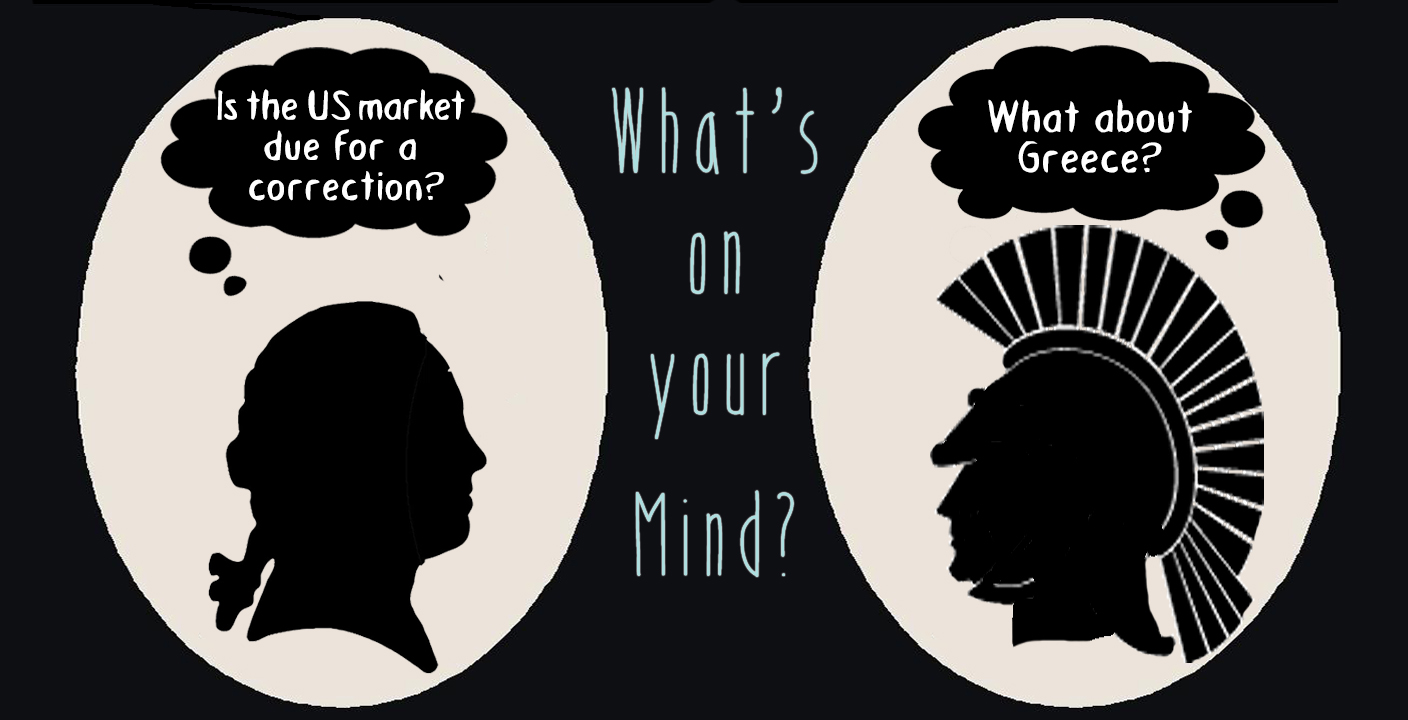
What’s On Your Mind? Investor Questions

Is the US market due for a correction?
If you Google that question, you will see people have been predicting a correction in the US stock market for years now. A healthy market will experience corrections, so rather than trying to predict them or live in fear of them, investors are better off incorporating them into their long-term strategies. Our investing philosophy is built on the knowledge that markets go both up and down, and does not require us to predict market performance in order for our strategies to be successful in the long run.
Now, do I know for a fact that we are due for a correction any day now? No, I don’t and neither does anyone else. But when the next one inevitably happens, we believe our evidence-based investing approach helps investors be as prepared as they can be to weather the storm.
Further reading:
- Two more years of Bull?
- Forecasting Follies
- Should You Time the Markets When Experts Can’t?
- The Bull Market That Didn’t End in a Crash
What happens to stocks and bonds when US interest rates rise?
First, people have been predicting a significant rise in interest rates for years now; refer to the folly of forecasting above. Second, every rising interest rate cycle is different, but history shows that stocks have generally experienced positive returns, with international stocks tending to do much better than US stocks. US bonds – not great but not terrible. In a rising interest rate environment, diversification is your ally.
Further reading:
- Can your portfolio survive rising interest rates?
- What Happens to Stocks and Bonds When the Fed Raises Rates?
- What Do Low Interest Rates Mean for Stock Market Returns?
What about Greece?
Fast on the heels of the US financial crisis of 2007–2008, one of our next walls of worry came in the form of a potential Greek debt default, averted at what seemed to be the last possible minute. Will we see another last-minute “save” in the ongoing Greek crisis or, this time, will worse come to worst?
Again, our predictive powers are no greater than anyone else’s, but we would propose that the most sensible strategy for even a worst-case scenario remains the same globally diversified approach we already are embracing. As financial author Larry Swedroe explained in this 2010 overview of economic crises since the 1970s, “Crises are ‘normal’ … If crises were rare, equity investing would be less risky, the equity risk premium would be smaller, and equity returns would be lower.” Diversification can’t prevent the storms from occurring, but it offers you the widest umbrella of protection during the downpours.
Further reading:
 Secure Document Sharing
Secure Document Sharing


